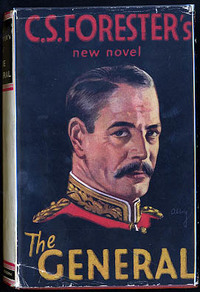#TheGeneral-CSForesterNovel
The General (C. S. Forester novel)
The General is a 1936 novel by C. S. Forester, who is also known for his Horatio Hornblower novels and 1935's The African Queen.The General follows the career of Herbert Curzon from his experiences as a junior officer in the Second Boer War to the
Read More..
by C.S. Forester
Ratings
Likes
Reviews
Popularity
Ranks
This #hashtag is not ranked yet.

